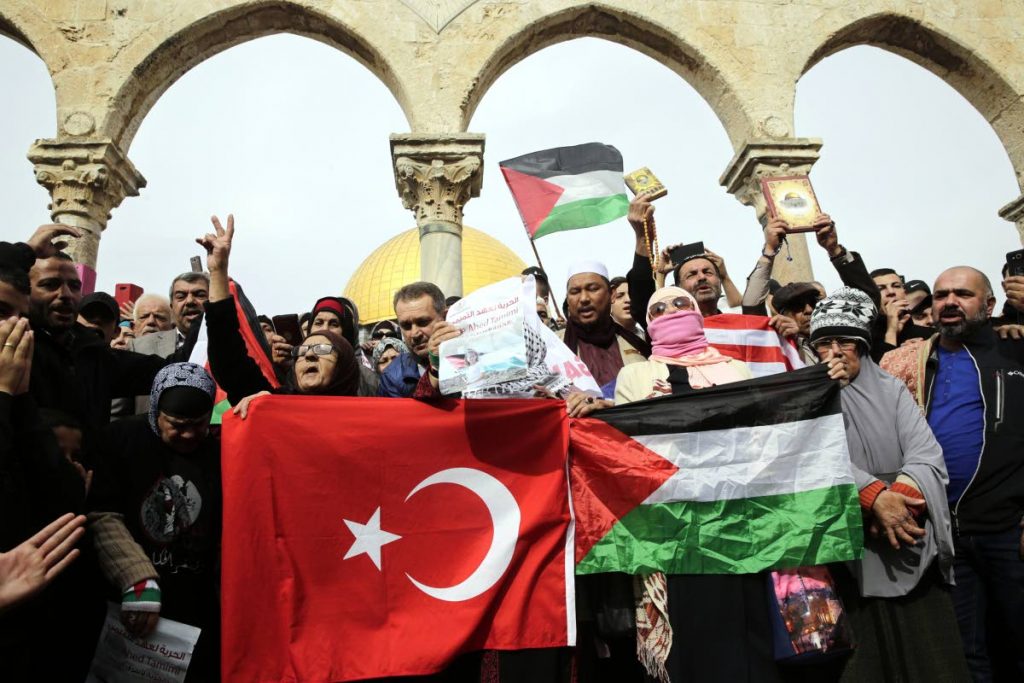A sadly unholy city

Marina Salandy-Brown writes a weekly column for the Newsday.
Jerusalem. On the eve of Christmas, the political talk surrounding the most holy city evokes nothing like peace and love, joy and celebration. Jerusalem, one of the oldest cities in the world, has been a battleground since biblical times but the latest trigger is President Trump’s decision to recognise Jerusalem as the capital of the Jewish state of Israel, against the wishes of almost every other country in the world.
Keeping Jerusalem, the holy capital of Christians, Jews, and Muslims neutral has been central to much of the endless negotiations that have taken place since the turning point 1967, six-day war against Israel by Jordan, Egypt and Syria that ended with Jordan losing the West Bank and East Jerusalem, Syria’s loss of the Golan Heights, and Egypt forfeiting control of the Gaza Strip and loss of the Sinai Peninsula. Annexing East Jerusalem was more than a concrete Israeli victory; for many Jews it was the coming home for the Jewish people, who had not dared to believe that they could control it until that momentous conquest.
Understanding the intricacies of the Israeli-Palestinian conflict is a challenge, but certain facts are key. The creation of the “state” of Israel was not intended by the British, who had a mandate over Palestine and agreed to settling a limited number of Jewish people there to provide them with a “homeland.” But Zionist revisionists outmanoeuvred them, resorting to extreme violence against them and Palestinians alike to achieve their ambitions of an independent state. The UN declaration in 1947 agreed to the partitioning of Palestine to provide a zone for Jews but also provided for a special international regime to govern Jerusalem, which had special status in the new arrangement. The singular nature of Jerusalem remains an abiding sentiment internationally.
The Palestinians rejected giving up their ancestral and livelihood-giving lands to strangers and, understandably, rebelled against the move, as they had against the influx of foreign Jews since the 1920s, but they were never a match for the western-born, urbane, influential Jews who were part of the fabric of western societies. Far-sighted Jewish intellectuals and businessmen such as Herzl and Weizmann had spent decades planning the creation of a Jewish state and the Jewish people were prepared. When Ben Gurion declared an independent Jewish state in Palestine in 1948, as the British mandate expired, the armies of Jordan, Egypt, Lebanon, Iraq and Syria invaded Israel but lost much land earmarked for Palestinians, including West Jerusalem. That history continued with Palestine at each succeeding Arab-Israeli battle losing more leveraging power. Only in the Yom Kippur war of 1973 did Egypt gain enough of a military upper hand and win back the Sinai Peninsula.
Israel has unrelentingly used its advantage and undying US support to pursue internationally unpopular and UN-deemed illegal policies to establish Jewish settlements in occupied Palestinian territories. Although Jerusalem was always intended to be the Jewish capital and parliament is strategically located there, governments never enforced it, creating the modern, commercial capital of Tel Aviv instead. Israeli governments have been mindful of international opinion on Jerusalem but any visitor to East Jerusalem soon realises that Jewish people are less so. Long ago they infiltrated Arab and Christian parts of the city, even in the old Arab quarter. Successive hawkish governments have encouraged that confidence by creating dozens of official barriers, surrounding settlements that enjoy military protection.
In a three-week working visit to Israel in 1998 I visited residents of two settlements. I was struck by their disregard for the Palestinians, many of whom they employ as menial labour, and by their strong sense of an inalienable right to all of the terrain known as the Holy Land. In Ramallah I met former PLO negotiator Hanan Ashwari to learn first hand of the very different approaches within the Palestinian camp. I recorded interviews with Israeli ministers and politicians in the Knesset. I met Jewish and Palestinian academics, writers, artists and ordinary people in Tel Aviv and East and West Jerusalem, visited kibbutzes in the countryside and city clubs and was taken to Temple Mount by Jewish politician Reuven Rivlin, now Israeli President. I witnessed the palpable sense of futility on the part of the Palestinians, their deep pain at the injustice and, despite the extremes of left and right wing opinion among Jewish people, their entrenched sense that Israel must survive, regardless. I came away understanding that peace in Israel/Palestine is not achievable. President Trump has merely pushed the inevitable along its slow path of steady attrition and Palestine nearer to its demise.


Comments
"A sadly unholy city"